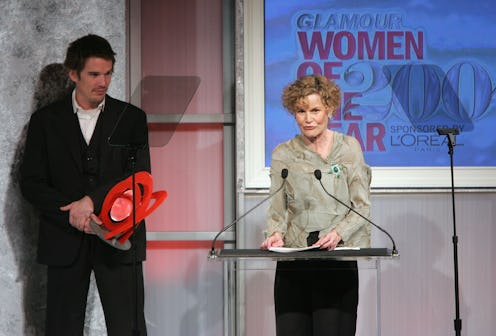Books
Uh Oh, Women Don't Dominate YA Lit, Either
It has been generally thought that because women are highly represented as authors in the children's and YA space, that they'd also be prevailing in award winners and nominees. Recent VIDA count data shows that our assumptions may be false. Men may have a smaller representation in children's and YA lit, they are actually highly represented for these awards.
According to its website, VIDA was "founded to address the need for female writers of literature to engage in conversations regarding the critical reception of women’s creative writing in our current culture." Every year, they release data about female representation in various categories of literature.
For the children's and YA data, VIDA looked at 10 prestigious industry awards in the past five-year span, as well as seven of the most prestigious Best Books of the Year lists in 2013. Data shows that these award nods and wins drive book sales and revenue via speaking engagements.
While 12 of the 16 awards and best book lists were skewed toward women authors, it's definitely not the runaway dominance industry experts may have thought. The biggest win for women was in the William C. Morris YA Debut Award.
In this award for an author's debut novel, women snap up all categories: the winners, finalists, and grand prize winners. (It should be noted that this year's winner was female, Charm & Strange by Stephanie Kuehn.)
The highly respected Booklist Editor's Choice: Best Books for Youth 2013 overall chart shows just how much you have to dig into these numbers.
It seems that female authors run away with this list as well; but looking closer, that might not be the case. Women have the overall most amount of mentions, and they completely take over the middle grade lists, but they're exactly on par with male authors in the older, high school space.
Many of the pie charts show a very, very close competition.
The Printz Award for excellence in young adult literature is about as close as it can be over the last five years, with men just a slight bump up from women.
The same goes for Publishers Weekly's Best Children's Books of 2013, with men up in the count for picture books and nonfiction, and women taking fiction.
But take a look at the Stonewall Book Award, which goes to excellence in LGBT literature:
That's a lot of red. Men have taken home all of the grand prizes in the past five years, and represent the majority of nominations and finalists.
The bottom line? These pie charts certainly aren't dominated by women, and that is surprising.
In a statement, VIDA co-director Erin Belieu addressed this issue.
This new data for children’s books questions the assumption many have that at least one industry in publishing actually favors women. In fact, the story is the same. Being male still seems to present an advantage when it comes to recognition, prestige, and awards.
Why could this be happening? It's not that more men are putting out children's and YA books than women; it's that they seem to be getting more recognition. There is a lot said about the stigma of YA literature, but it does seem to stick to women more than it does men. Innovative, and successful, female YA authors like Suzanne Collins are passed off in the literature community as a ripoff of Japanese male author Koushun Takami's Battle Royale. Divergent's Veronica Roth takes all kinds of flack and is constantly called a ripoff of — wait for it — Suzanne Collins. Whereas male writers like John Green — who, I agree, is spectacular — may be given more credit for writing "real" literature, thus getting more award nods.
The trouble with female recognition speaks to an ongoing problem in the young adult literature community of being condescended to because of the YA label. Chloe Grace Moretz came under fire recently for precisely this issue, but unfortunately, many people agree with her. Moretz told Entertainment Weekly:
What’s interesting about Gayle’s novel is that it’s not really that YA. It deals with issues that are much bigger…it’s much darker than I think most YA is .. I want people to walk in and feel like they actually felt something, and learned something, and realized something different about life that’s more than just, ‘Oh, I saw this love triangle and it’s super sad because she chose the guy I didn’t like. And then the movie was over.’ And you’re like, ‘Okay, that’s pathetic.’ You want to watch something that actually means something and makes you feel and makes you want to be involved.
Sigh. Ask readers of Laurie Halse Anderson, S.E. Hinton, Lois Lowry, Judy Blume, Rainbow Rowell, and countless others if their books actually mean something.
One of the ways to up the ante on female recognition in the YA and children's space is to not differentiate excellent books. Stop calling moving, quality novels by women "not really that YA," and help elevate them to award recognition in the genre they are.
Images: VIDA
